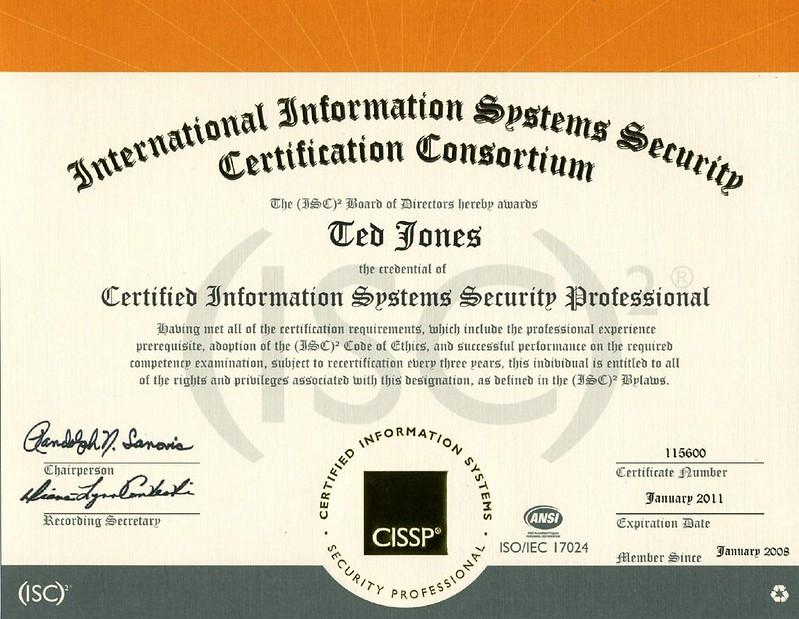Are you looking for an ultimate guide on how to become a site reliability engineer? SREs are crucial for modern, highly available, and scalable systems. They bring a blend of software engineering and operations expertise.
Today, I will discuss the steps to start this career, including the educational requirements, core skills, and relevant certifications. Let’s check!
Who Is A Site Reliability Engineer?
A site reliability engineer (SRE) is a person who ensures the reliable and efficient operation of websites and online services.
These engineers focus on automation, monitoring, and collaboration to prevent downtime and improve system performance.
SREs bridge the gap between software development and IT operations. Here’s what they do:
- Prevent websites and apps from crashing.
- Use automation tools (Ansible, Terraform, etc.) to reduce manual intervention, increase efficiency, and minimize human error.
- Keep an eye on the performance and security of websites and systems.
- Set up alerts that notify potential issues.
- If something does go wrong, SREs jump into action to fix it as quickly as possible.
- Make systems more efficient and use as little energy and resources as possible.
- Work with programmers and IT experts to build software and align on reliability goals.
- Maintain documentation of systems, processes, and incident responses.

Where Do SREs Work?
SREs work in different places where computers and the internet are super important. Here’s where you can find them:
- Big tech companies: SREs help tech giants like Google and Amazon keep their websites and apps working smoothly.
- Financial institutions: SREs ensure banks and money apps, where you manage your cash online, run without problems.
- E-commerce companies: Online retailers like Amazon, eBay, and Alibaba need SREs to ensure their online shops don’t crash when lots of people shop.
- Social media sites: SREs work at Facebook, Twitter, and similar companies to stop them from breaking when many people use them.
- Cloud services: SREs keep cloud services like AWS and Google Cloud working so other companies’ websites and apps stay online.
- Streaming: Netflix and Spotify hire SREs to prevent problems during peak streaming times.
Educational Requirements
To become a SRE, educational qualifications play a role in preparing you for this challenging and rewarding career. You’ll need some specific education:
- Bachelor’s degree: First, you should finish a four-year college program. Most companies want you to have this. It’s best if your degree is in Computer Science (CS).
- Computer knowledge: You should know a lot about computers and how they work, including operating system, coding languages, and computer networks.
- Certifications: Some extra certificates can also help, for example, certificates in cloud computing or network admin.
In short, to be an SRE, you need a college degree, preferably in CS. You should also be good at math and understand computers deeply. Getting extra certificates can make you even more appealing to employers.
How To Become A Site Reliability Engineer
This guide will describe the six steps of the career path to become an SRE, from getting a formal degree and honing core skills to gaining experience and applying for jobs. Let’s jump straight in!
1. Get A Bachelor’s Degree

Getting a Bachelor’s degree is the most time-consuming step in this path. So, you should start taking this step as soon as possible.
Regarding the major, CS is the best choice because it teaches you the essential skills for an SRE job, like programming and algorithms.
If you don’t want to (or can’t) study CS, go for something closely related like IT, Software Engineering, or Computer Engineering because they cover similar topics.
When looking for a college that offers these programs, ensure it’s accredited and has a strong reputation for tech studies. If you feel overwhelmed with your current college options, here are some tips for choosing the right one:
- Make sure it is accredited, meaning it meets quality standards.
- Check tech program rankings on U.S. News & World Report.
- Read what students and pros say about it on websites and forums.
- Chat with current students and grads to learn about their experiences and job prospects.
- Look into the professors’ expertise in tech.
Before applying for the college you want to learn, ensure you meet their admission requirements, like having a high school diploma or equivalent. You might also need to take standardized tests like the SAT or ACT.
2. Hone Core Skills

There are nine vital skills that an SRE should have (which I will cover in more detail later). Yet, in the early stages of this process, you need to focus on developing the following five core skills:
- Strong IT knowledge and skills: Start by learning about computers, networks, and the internet. Also, get to know cloud platforms like AWS or Google Cloud, which are often used in SRE jobs.
- Data analysis: Practice finding vital insights in big data sets using Python or R.
- Coding skills: Learn how to write computer code to fix problems in software and make tasks automatic. Focus on languages like Python, Go, or Shell scripting.
- Database management: Learn how to set up and organize data and keep them running smoothly. Know both SQL and NoSQL databases, as they have different uses.
- CI/CD pipeline development: Learn how to set up and manage these systems using Jenkins or GitLab CI.
To develop these skills, you can take online courses on Coursera or Udacity and apply what you learn by working on your own projects or contributing to open-source ones.
3. Learn Version Control and Monitoring Tools

Version control tools help track changes in code and system configurations. Monitoring tools help track performance and detect and respond to incidents. So, you need to master these tools as soon as possible to become an SRE.
To learn version control tools:
I recommend starting with Git. Git is a popular language for version control. Learn how to use it to save and share your code changes on GitHub and GitLab.
When you know the basics, create your own Git projects and practice managing your code changes.
To learn monitoring tools:
You can start with Prometheus, Nagios, or Zabbix. They’re the most popular monitors, so you can find guides and help easily. I recommend looking for online classes that teach you how to use your chosen monitoring tool.
To practice, try setting up monitoring for something simple, like your computer’s performance. Then, see how it works and learn to fix issues.
4. Get Certifications

Besides a formal degree, you should possess several related certificates to strengthen your knowledge and skills in this field. Here’s a list of certifications that can boost your career as a SRE:
- Google Cloud Professional DevOps Engineer shows you can handle tech tasks on Google Cloud.
- AWS Certified DevOps Engineer proves you can manage apps on Amazon’s cloud using CI/CD pipelines, automation, and reliability engineering methods.
- CKA focuses on handling container tech, which is vital for SREs.
- CISSP shows your ability to keep systems and data safe from digital threats.
- CISM is about managing digital security, which is crucial for SRE jobs.
- CSM teaches how to manage tech projects well, which helps in SRE teams.
- CSRE is a new certification about SRE skills like keeping tech reliable and fixing issues.
- RHCE is for being great at managing Linux systems.
- Certified Jenkins Engineer is for setting up and managing Jenkins.
- CISA focuses on checking and making sure tech follows rules and is safe.
Remember that certification alone may not guarantee success but can enhance your skills and marketability as an SRE.
5. Gain Experience

SREs work with complicated computer systems and software. So, gaining experience and knowing these things well is a big help.
Typically, you need 1-2 years of work experience in the following entry-level jobs before becoming an SRE:
- Many SREs begin their careers as software engineers. This path is good because it equips them with a lot of knowledge about coding and how software works.
- DevOps engineers are also well-positioned to become SREs. DevOps practices emphasize collaboration between development and operations teams, which aligns closely with SRE principles.
- Otherwise, you can start as a system admin to get experience in managing computer systems. Your knowledge of server configurations and networking will be valuable when transitioning to an SRE.
No matter where you start, you must understand how complex computer systems and software come together.
6. Apply For Jobs
After 1-2 years of working in entry-level positions, you should look for SRE jobs and apply for them.
Start by making a resume that covers your skills, experience, and education. Focus on coding, system management, and problem-solving. If you have any certificates or special training, mention those.
Don’t forget to write a cover letter that explains why you want to be an SRE and why you’d be good at it. Then, be ready for interviews where they might ask you technical questions by practicing showing how you’d solve problems as an SRE.
If you get job offers, think about which is best for you by considering pay, benefits, the company’s culture, and how you can grow in your career.
Once you pick a job, get ready for it and try your best to make tech systems better and more reliable!
4 Types of SRE Careers
There are four main types of careers in SRE, so individuals from different technical backgrounds can find success in this field.
- Software engineers: These experts use their coding skills to automate tasks, build tools to watch over software, and ensure it works smoothly.
- Systems engineers: These experts manage computer systems and make sure they run well. They’re good at setting up servers, making them faster, and handling problems.
- Network specialists: These experts handle computer networks and make sure the network is stable and fast, which is vital for system reliability.
- Database admins: These are pros at managing databases. They make sure that databases are reliable, data is safe, and everything runs smoothly for apps and systems.
All these types of SREs bring different skills to the table, but they share a focus on making sure tech systems are dependable and work well.
9 Crucial Skills
Becoming a successful SRE will require mastering several skills:
- Coding skills: Write and understand code (Python, Go, or Shell scripting) to automate tasks and fix issues.
- OS-related skills: Know how computer systems work, like Windows or Linux, to set them up and fix problems.
- CI/CD skills: Use CI/CD pipelines to test and launch software.
- Skills in version control tools: Work well with version control systems like Git to track code changes, work with teams, and roll back changes if needed.
- Skills in monitoring tools: Work well with monitoring tools (e.g., Prometheus, Nagios) to track system performance, detect issues, and respond promptly to incidents.
- Database skills: Understand how to manage data in databases to keep information safe and systems running fast.
- Skills in cloud-native apps: Work with cloud platforms like AWS or Azure because many systems are in the cloud.
- Distributed computing skills: Handle spread-out systems. It’s essential for large and complex setups.
- Communication skills: Be able to talk and work well with others because SREs often collaborate with different teams.
Salary and Outlook
The typical pay range for SREs is between $108,000 and $173,000 per year, including a base salary of $90,000 to $138,000/year, plus extra pay between $19,000 and $35,000/year. The median income is about $136,000/year, which is quite good.
In terms of job outlook, although there are no specific figures for SREs, the field of computer network architecture (similar to SRE) is expected to grow by 4% from 2022-2032. There will be around 10,200 job openings each year in this field.

FAQs
Is Site Reliability Engineering A Hard Job?
Yes, SRE can be challenging. It involves managing complex systems and quickly solving problems. So, you need strong technical skills.
What Is The Highest Salary Of SRE?
The highest SRE salary can vary but can go to $173,000 yearly in certain places with high living costs.
Is SRE A Stressful Job?
SRE jobs can be stressful because you handle critical systems, especially during problems. Yet, good processes and teamwork can help manage stress.
How Long Does It Take To Become A SRE?
Becoming an SRE varies. Typically, it takes several years of education and hands-on experience in related roles like software development, system admin, or network engineering to transition into an SRE position.
Conclusion
Above is my guide on how to become a site reliability engineer. This career begins with getting an education to understand the basics of SRE work. Then, you need real-world experience to practice skills.
Tech changes fast, so you should keep learning about new tools and trends. Throughout this journey, determination and a knack for solving problems are your best friends.
Thank you for reading!
